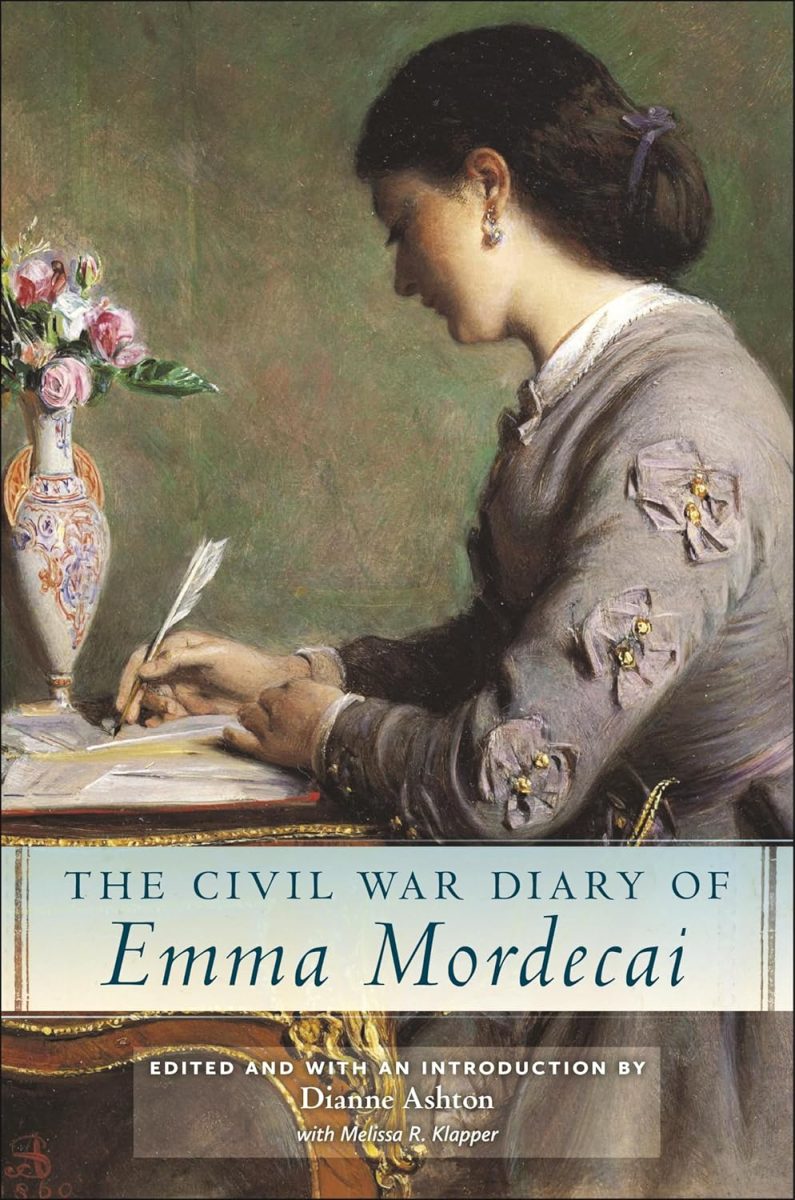Oftentimes, it’s not until we look to the past that we can gain a clearer picture of the present, and with it, the future. With this driving force in mind, Pitman’s Words Matter Bookstore celebrated the release of “The Civil War Diary of Emma Mordecai” last Tuesday, Nov. 12.
The book is the result of a 10-year study by the late Dianne Ashton, a professor of world religion and philosophy at Rowan who specialized in the history of American Judaism, women in Judaism, and religious life in America. The book follows the life of Emma Mordecai for a period in the mid-nineteenth century, including the four years that was the American Civil War, through the lens of a diary she kept at the time. The book’s structure gives clarity and insight into the finer points of Mordecai’s words, as its first third is a lengthy introduction written to explain the context behind the world Mordecai, and her diary, hailed from, while the subsequent majority of the book is a transcript of Mordecai’s diary itself.
At the time of Ashton’s death in 2022, Ashton had composed a manuscript and an unfinished book proposal on Mordecai’s life, though the book itself was far from complete. It was at this time that fellow Rowan professor Melissa R. Klapper took up the project where Ashton’s work had left off. Klapper, an American Jewish historian who had published multiple books previously, worked tirelessly to bring Ashton’s vision to fruition, culminating in the publication of “The Civil War Diary of Emma Mordecai” and the book’s launch Tuesday evening.
“Very often people think that American Jewish history started sometime in the 1880s when there was a mass migration of Jewish immigrants from Eastern Europe to the United States,” said Klapper. “But in fact, there had been Jews in America since the beginning of White settlement in what would become the United States.”
Klapper explained that publicizing and spreading the story of the life of Mordecai, an American Jewish woman living before the beginning of the pop-culture understanding of American Judaism, would help to give the public a deeper understanding of the story of Jews in the United States as a whole.
Mordecai, born as the twelfth of thirteen children to a predominantly Jewish family in Richmond, Virginia was a practicing Jew for all of her life, and the book explores the blend and contrast between her faith and heritage, and the wider world around her. Mordecai never married and lived with relatives all her life – for the period explored within the diary, she resided on a family-owned farm in Virginia. And, a product of her time, culture, and environment, Mordecai owned several enslaved people over the course of her life, a topic which is explored at great length in the book.
“She’s [Mordecai] a good example of the messiness of history,” said Klapper. “On the one hand, here’s this aspirational, educated woman who’s close to her family, … on the other hand, she’s no different than the culture around her, and she shared those racial attitudes…Like other people in history, she’s complicated, she’s a complicated figure, and the diary really demonstrates that.”
For comments/questions about this story DM us on Instagram @thewhitatrowan or email [email protected]
























































































































































!["Working with [Dr. Lynch] is always a learning experience for me. She is a treasure,” said Thomas. - Staff Writer / Kacie Scibilia](https://thewhitonline.com/wp-content/uploads/2025/04/choir-1-1200x694.jpg)









































